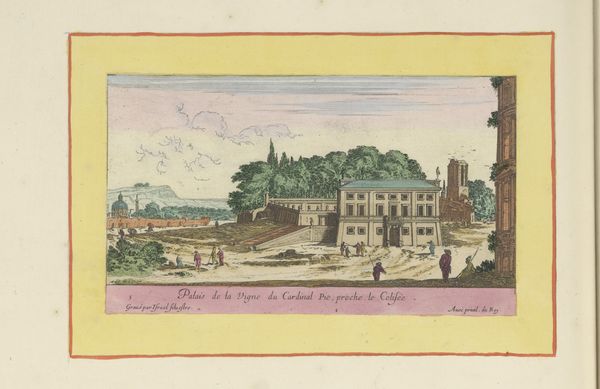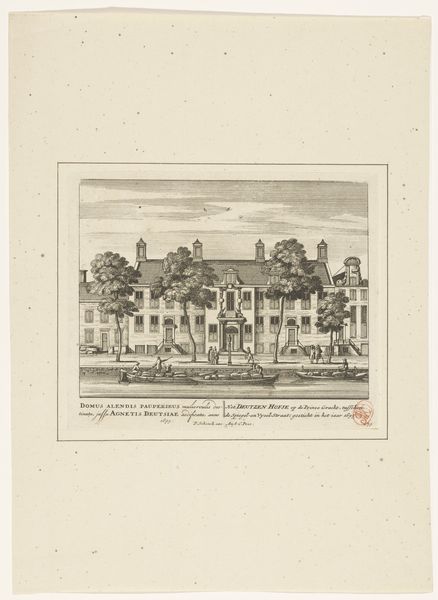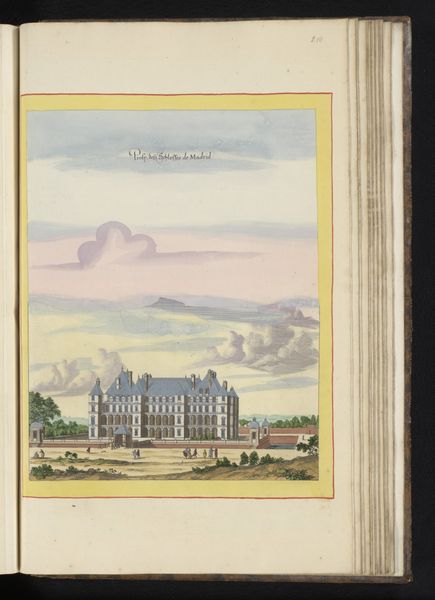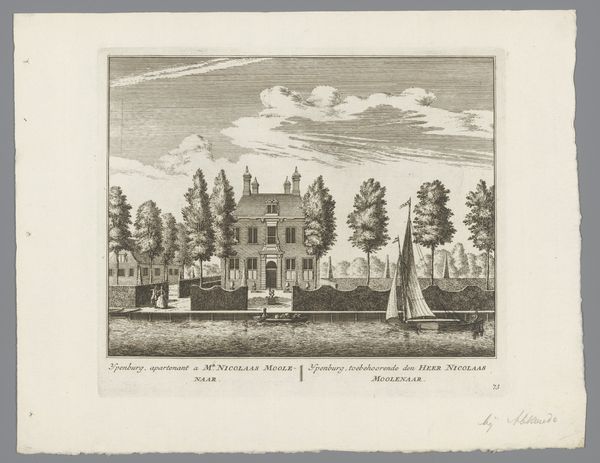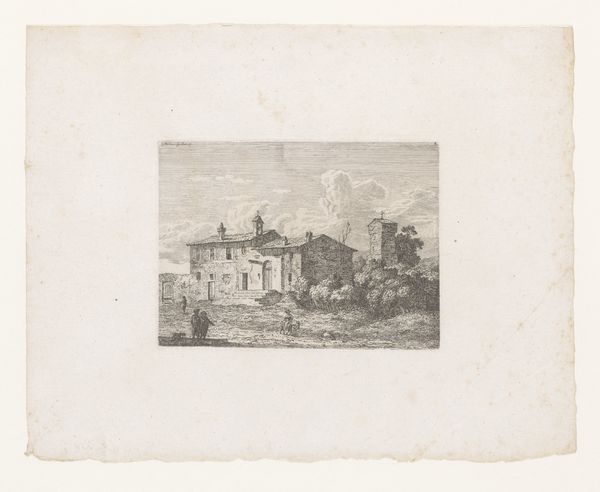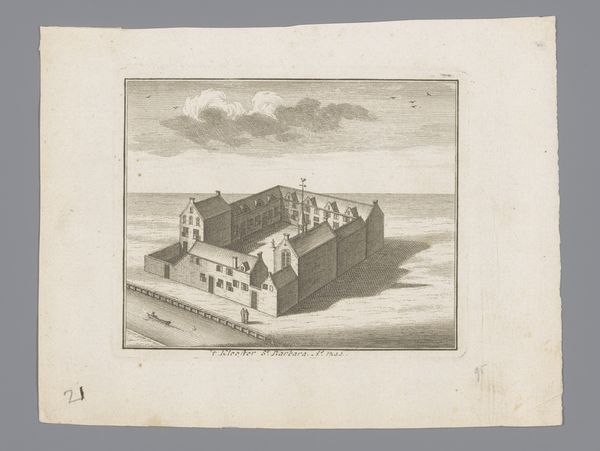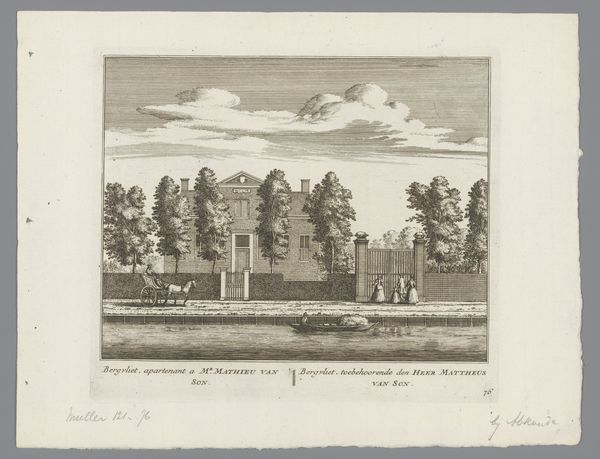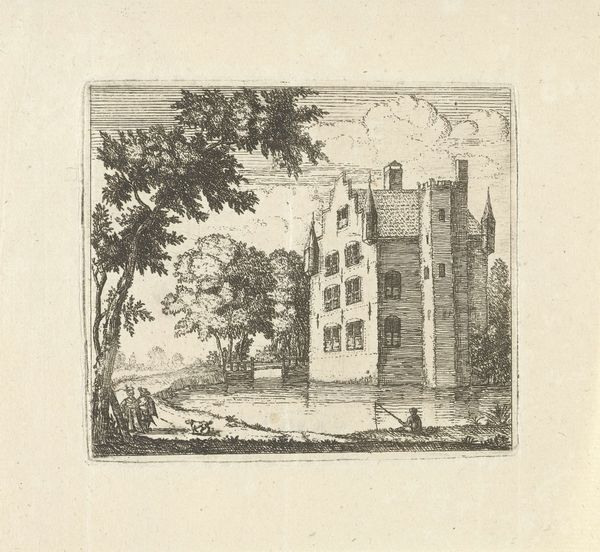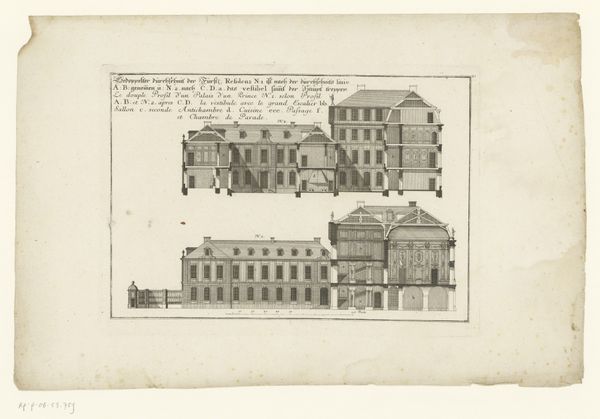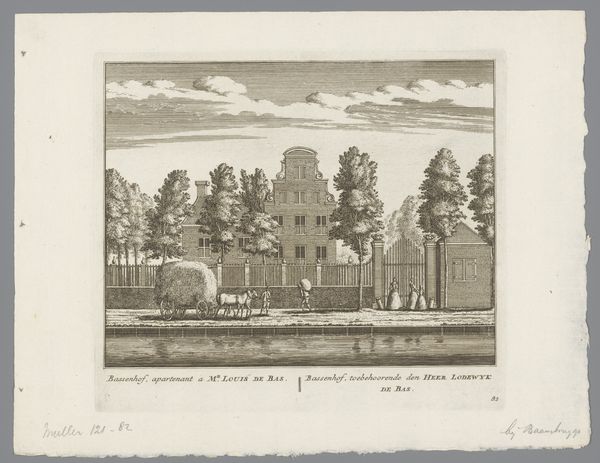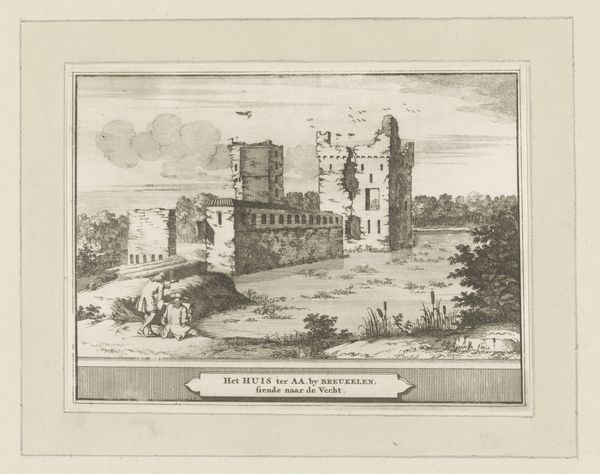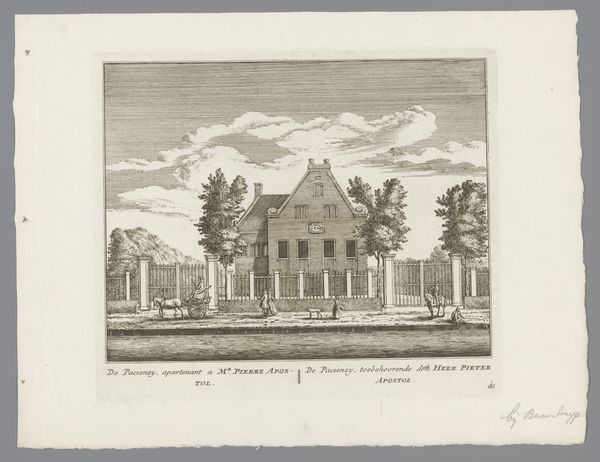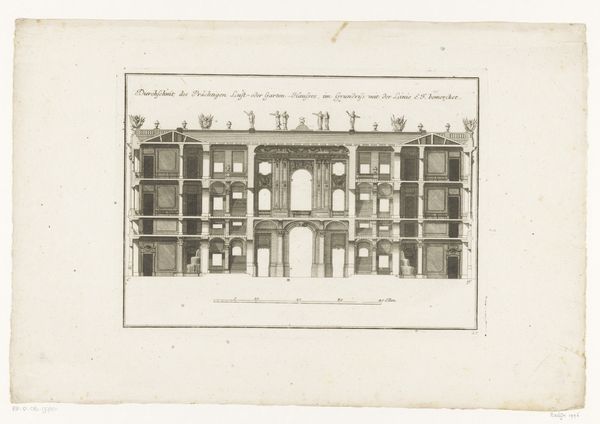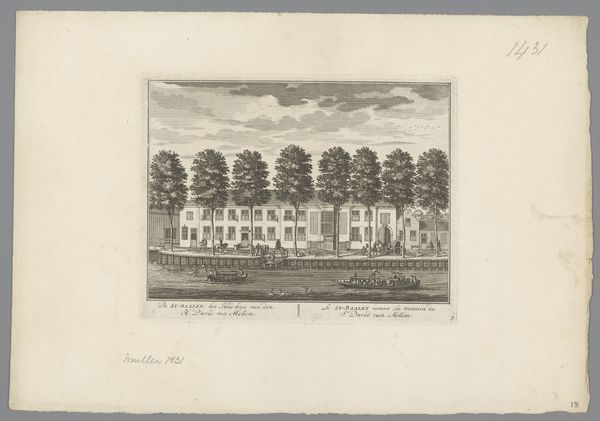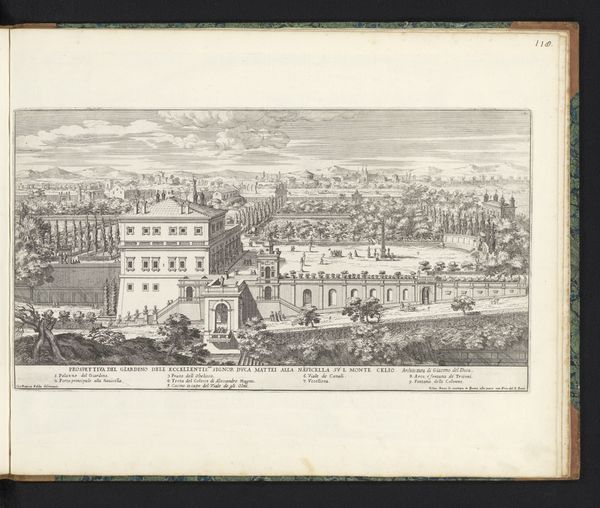
Gezicht op de ruïne van het oude slot te Saint-Germain-en-Laye 1655
0:00
0:00
painting, watercolor
#
baroque
#
painting
#
landscape
#
watercolor
#
cityscape
#
watercolour illustration
#
history-painting
#
watercolor
Dimensions: height 168 mm, width 159 mm, height 536 mm, width 337 mm
Copyright: Rijks Museum: Open Domain
Matthäus Merian the Younger created this print of the ruined castle of Saint-Germain-en-Laye sometime in the mid-17th century using etching and engraving techniques. This image speaks volumes about the changing fortunes of power and the aesthetics of decay. Made in the Netherlands during its Golden Age, a period marked by burgeoning capitalism and a shift in cultural values, the image presents the ruin not as a symbol of loss but as an object of artistic and perhaps even nationalistic interest. This aestheticization of ruins reflects a broader cultural trend. What was once a symbol of feudal power is now reduced to a picturesque scene, fitting neatly into the frame of a print destined for a collector’s cabinet. The choice of such a subject reflects a society that is self-consciously looking at its past through a different lens, one that values the aesthetic and the moral lessons that can be drawn from the decline of great structures. To fully understand this image, one could delve into the printmaking industry of the time, the market for such images, and the political dynamics between the Dutch Republic and France.
Comments
No comments
Be the first to comment and join the conversation on the ultimate creative platform.
